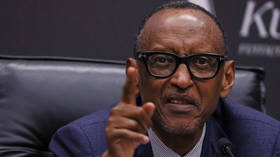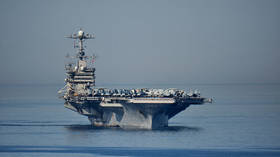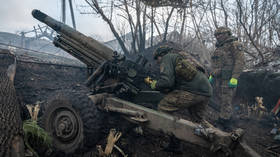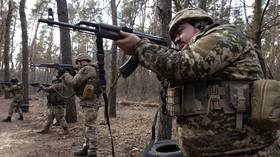Soviet assault on Afghan president remembered
Thirty years ago thousands of Soviet troops were deployed to Afghanistan. Within a few days they launched a special operation storming the Presidential palace and toppling the then-Afghan leader.
On December 27, 1979, three days after five thousand Soviet troops had been airlifted into Afghanistan, three Soviet battalions started making their way towards the Darul Aman Palace where President Hafizullah Amin had recently moved his offices.
The KGB at that time had accused President Amin of ousting the opposition, pretending to be loyal to Moscow while secretly seeking partnerships with Pakistan and China. Top Soviet leaders had even suspected Amin of being a CIA spy, and claimed they had the papers to prove it. Thus, due to the fears that the Communist regime of Afghanistan could be overthrown, Soviet leaders decided to replace Amin with a man of their choice.
The advance of the Soviet special forces marked the beginning of Operation Storm333 that lasted just 43 minutes and is considered by some to have been one of the most successful Soviet operations in Afghanistan.
“In each vehicle, we had four to five Alpha officers, the crew of the vehicle – the commander, the driver and the gunner. And in addition to that, we had Afghans riding with us,” recalled Alpha Commander Oleg Balashov.
“In my car we had the future Afghan Defense Minister. I assigned one of my men to look after him. I told him: Guard this man with your life. No matter what happens, he must stay alive."
The Muslim Battalion that consisted of soldiers from the Soviet Central Asian republics who looked and sounded like Afghan locals provided cover for the special forces involved in the assault on the Palace.
“We were told that [Hafizullah Amin] had been a bloody dictator responsible for the deaths of thousands of people,” recalled Rustam-Khadzha Tursunkulov, retired colonel of the Muslim Battalion. “We had to overthrow the bloody regime and back up the Afghan people to come to power.”
However, the costs were high for the Soviet troops and the odds were stacked against them.
“To understand this massacre you had to have seen it,” explains Balashov. “We were shooting to protect our fighters because the gunfire was terrible. The enemy was shooting from the roof, from the windows, and they were protected by the walls while our fighters were on open ground and could be easily shot down. What I still remember and what impressed me was the number of soldiers defending the palace, the number of our enemies.”
There were 24 Soviet soldiers against 300 Afghan Palace guards. Balashov was one of the many wounded. Two Alpha and three Zenith commanders were killed. As many as 200 Afghan security and military personnel were killed, including Amin and his son.
“We received information that tonight something would happen. Amin called all of his commanders to the Palace as he wanted to be prepared to command all his troops against the Russians,” says Mohammed Akbar, Afghan Army veteran. “But the Russians had already recruited a cook who put poison in the food. Amin was still alive when the Russian special troops got to him. Later, when we came here, we couldn’t find any of his remains.”
Amin was the third Afghan President to be toppled in just twenty months. Babrak Karmal, supported by the Soviet Union, immediately became president of Afghanistan. The success of the operation did not, however, prevent an open conflict, and the nine-year long Soviet-Afghan war had effectively begun thereafter.













